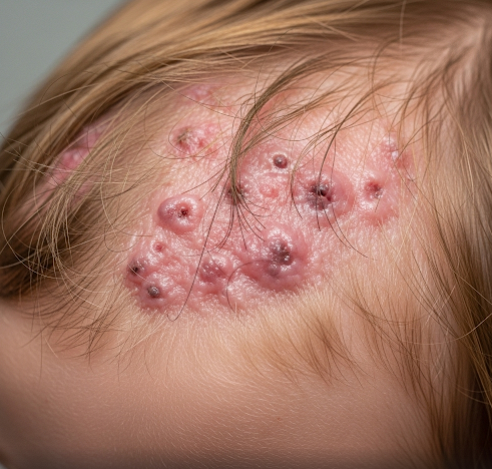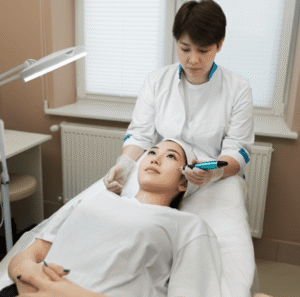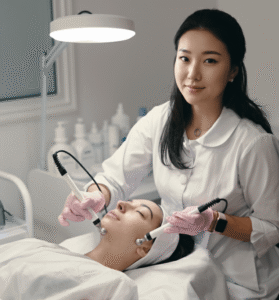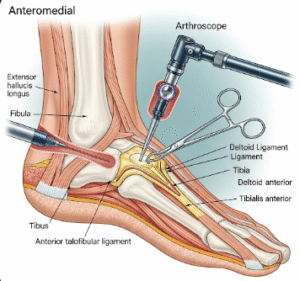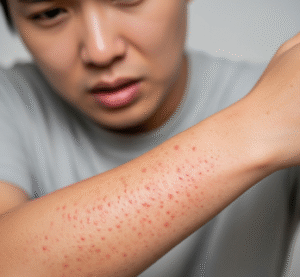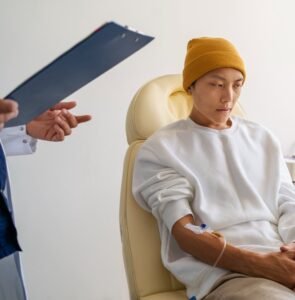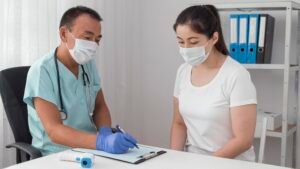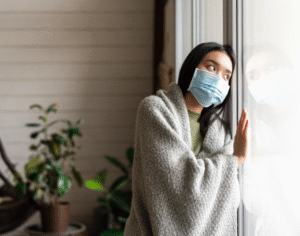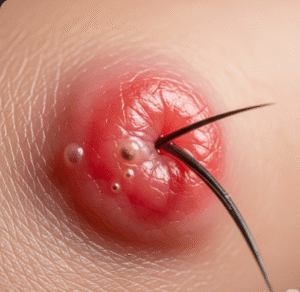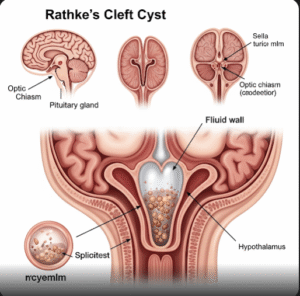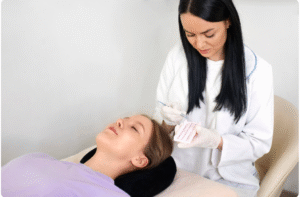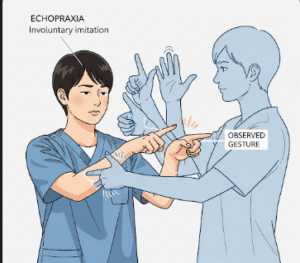Overview
Kerion is a severe inflammatory reaction of the scalp caused by a fungal infection known as tinea capitis. It typically presents as a painful, swollen, pus-filled lesion that can lead to hair loss and scarring if not promptly treated. This condition primarily affects children but can occasionally occur in adults. Korea’s advanced dermatology and infectious disease centers provide rapid diagnosis and effective treatment options to manage kerion, minimizing complications and promoting scalp healing.
What Is Kerion?
Kerion is an intense inflammatory form of tinea capitis, which is a fungal infection of the scalp and hair follicles caused by dermatophyte fungi such as Trichophyton and Microsporum species. Unlike typical ringworm infections that cause mild scaling and hair loss, kerion triggers a severe immune response leading to pus-filled, boggy swelling with crusting and often accompanied by regional lymph node enlargement. Without proper treatment, kerion can result in permanent scarring alopecia.
Symptoms
- Painful, swollen, and inflamed scalp lesion often covered with pustules or crusts
- Hair loss or broken hairs in the affected area
- Pus discharge and yellowish crust formation
- Enlarged, tender lymph nodes near the scalp or neck
- Fever and malaise in some cases
- Itching and tenderness of the scalp
- The lesion feels soft and spongy (“boggy”) on palpation
Causes
Kerion is caused by an infection with dermatophyte fungi that invade the hair shaft and follicles. The intense inflammatory reaction is the body’s immune response to the fungal elements rather than the fungus itself causing tissue destruction. Common causative fungi include Trichophyton tonsurans, Microsporum canis, and Trichophyton verrucosum. The infection is contagious and often spreads through direct contact with infected individuals, animals, or contaminated objects such as combs and hats.
Risk Factors
- Childhood age group, especially between 3 to 10 years old
- Close contact with infected people or animals
- Poor personal hygiene
- Living in crowded or warm, humid environments
- Sharing personal items like combs, hats, or pillows
- Immunocompromised individuals may have more severe or persistent infections
Complications
- Permanent scarring alopecia due to follicle destruction
- Secondary bacterial infections worsening inflammation and tissue damage
- Psychological impact due to visible scalp lesions and hair loss
- Spread of fungal infection to other areas or individuals if untreated
Prevention
- Avoid sharing personal items such as combs, hats, towels, and pillows
- Maintain good scalp hygiene and regular washing
- Keep pets checked for fungal infections
- Prompt treatment of any suspected scalp fungal infection to prevent progression
- Educate children and caregivers about fungal infection transmission
Treatment Options in Korea
Korean medical centers offer comprehensive, evidence-based treatment for kerion:
- Oral Antifungal Medications: The cornerstone of kerion treatment is systemic antifungals such as griseofulvin, terbinafine, itraconazole, or fluconazole, given for several weeks to eradicate the fungal infection.
- Topical Antifungal Agents: Adjunctive use of medicated shampoos containing ketoconazole or selenium sulfide helps reduce fungal load on the scalp and prevent spread.
- Anti-Inflammatory Therapy: In severe cases, short courses of oral corticosteroids may be prescribed to reduce painful inflammation and swelling.
- Wound Care: Proper cleaning of crusts and pustules prevents secondary bacterial infections. Antibiotics may be prescribed if bacterial superinfection occurs.
- Follow-Up Monitoring: Regular clinical follow-up and scalp examinations ensure infection resolution and hair regrowth.
- Patient Education: Korean dermatologists emphasize preventive measures, hygiene practices, and adherence to treatment to avoid recurrence and transmission.
Korea’s dermatology clinics are equipped with advanced diagnostic tools, including fungal cultures and molecular testing, to accurately identify the causative organisms and tailor therapy accordingly.

